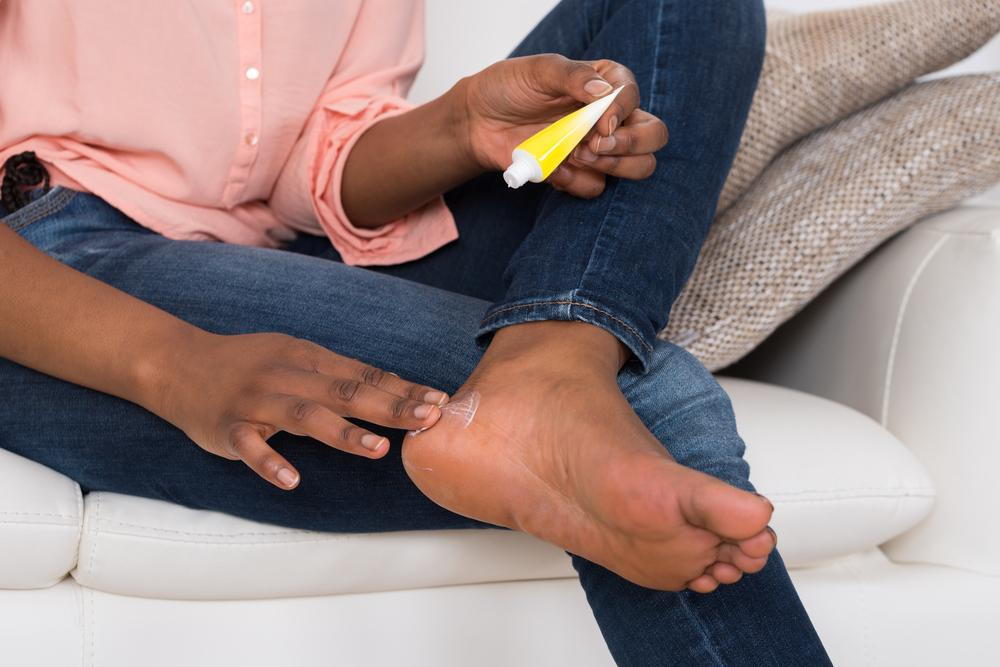 Wearing flip flops frequently may lead to the skin on the heels becoming dry, causing the condition known as cracked heels. Additionally, cracked heels may form from standing on hard surfaces for the majority of the day, or from having specific medical conditions. These conditions may consist of diabetes, obesity, eczema, and psoriasis. Research has indicated it may help to incorporate zinc and omega-3 into your diet which can be accomplished by taking vitamins. Some of the symptoms that are associated with cracked heels can include peeling skin, bleeding cracks, and the affected area may be red and itchy. If you are experiencing any signs of cracked heels please schedule a consultation with a podiatrist who can effectively treat this ailment.
Wearing flip flops frequently may lead to the skin on the heels becoming dry, causing the condition known as cracked heels. Additionally, cracked heels may form from standing on hard surfaces for the majority of the day, or from having specific medical conditions. These conditions may consist of diabetes, obesity, eczema, and psoriasis. Research has indicated it may help to incorporate zinc and omega-3 into your diet which can be accomplished by taking vitamins. Some of the symptoms that are associated with cracked heels can include peeling skin, bleeding cracks, and the affected area may be red and itchy. If you are experiencing any signs of cracked heels please schedule a consultation with a podiatrist who can effectively treat this ailment.
If the skin on your feet starts to crack, you may want to see a podiatrist to find treatment. If you have any concerns, contactone of our podiatrists of The Foot and Ankle Associates of North Carolina, PLLC. Our doctors can provide the care you need to keep you pain-free and on your feet.
Cracked Heels
It is important to moisturize your cracked heels in order to prevent pain, bleeding, and infection. The reason cracked heels form is because the skin on the foot is too dry to support the immense pressure placed on them. When the foot expands, the dry skin on the foot begins to split.
Ways to Help Heal Them
- Invest in a good foot cream
- Try Using Petroleum Jelly
- Ease up on Soaps
- Drink Plenty of Water
Ways to Prevent Cracked Heels
- Moisturize After Showering
- Skip a Shower
- Keep Shower Water Lukewarm
- Don’t Scrub Your Feet
If you are unsure how to proceed in treating cracked heels, seek guidance from a podiatrist. Your doctor will help you with any questions or information you may need.
If you have any questions, please feel free to contact one of our offices located in Ahoskie, Durham, Raleigh, and Rocky Mount, NC. We offer the newest diagnostic and treatment technologies for all your foot care needs.

